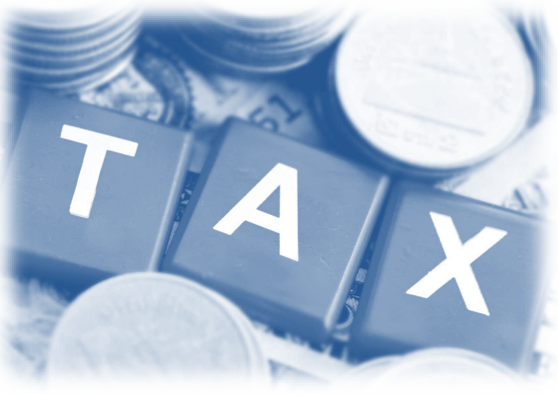If you’re eyeing a career at Goldman Sachs as an associate, you’re probably curious about what the paycheck might look like in 2025. Well, you’re in luck because we’re diving into all things salary-related for associates at this financial giant. From base pay to bonuses, and how your experience can bump up those numbers, we’ve got you covered. Plus, we’ll take a peek at how Goldman Sachs stacks up against other big players in the investment banking world. Whether you’re just starting out or looking to climb the ladder, understanding these details can help you make informed career decisions.
Key Takeaways
- Goldman Sachs associates in 2025 can expect a base salary ranging from $74k to $122k, with bonuses adding an extra $5k to $10k.
- Bonuses play a significant role in total compensation, often pushing the total pay range to between $79k and $132k.
- Career growth at Goldman Sachs can lead to substantial salary increases, especially with experience and advancement opportunities.
- Goldman Sachs offers a variety of benefits, including health and wellness, retirement plans, and work-life balance initiatives.
- When comparing with other investment banks, Goldman Sachs remains competitive in terms of salary, work environment, and employee satisfaction.
Overview of Goldman Sachs Associate Salaries
Understanding the Base Salary Range
For 2025, the base salary for an Associate at Goldman Sachs typically falls between $74,000 and $122,000 annually. This range reflects the standard pay for individuals in investment banking roles, with variations due to experience and location. The median salary sits at about $82,424, giving a solid indication of the midpoint for Associates.
Factors Influencing Salary Variations
Several factors can influence the salary of an Associate:
- Experience Level: Early-career Associates might earn closer to the lower end, while those with more experience can expect higher salaries.
- Location: Salaries can vary significantly depending on where you are based. For instance, Associates in New York might earn more than those in smaller cities.
- Educational Background: Degrees in finance or economics can also affect salary ranges. For example, a Bachelor of Science in Finance might command a different pay scale compared to a Bachelor of Arts in Political Science.
Comparison with Industry Standards
When compared to industry standards, Goldman Sachs is competitive, although not always the highest payer. Here’s a quick comparison with other major banks:
| Bank | Average Associate Salary |
|---|---|
| Goldman Sachs | $82,424 |
| J.P. Morgan Chase | Similar range |
| Morgan Stanley | Slightly higher |
| Deutsche Bank | Similar range |
| Bank of America | Slightly lower |
Goldman Sachs maintains a strong reputation, not just for salary but for the overall career growth opportunities it provides.
While the base salary is a significant component, it’s essential to consider other aspects like bonuses and career growth when evaluating your total compensation package at Goldman Sachs.
Bonuses and Additional Compensation for Associates

Types of Bonuses Offered
At Goldman Sachs, associates can expect a variety of bonus types that complement their base salary. The firm typically provides performance-based bonuses, which are tied to both individual and company performance. Additionally, there are discretionary bonuses, often awarded at the end of the fiscal year, reflecting the overall financial health of the company. Some associates may also receive signing bonuses when they first join the firm, providing an immediate financial boost.
How Bonuses Impact Total Compensation
Bonuses at Goldman Sachs can significantly impact an associate’s total compensation package. In some cases, bonuses can constitute a substantial portion of an associate’s annual earnings. This means that while the base salary is competitive, the addition of bonuses can make the overall compensation package highly attractive. For example, an associate with a base salary of $100,000 might see their total compensation increase to $150,000 or more with bonuses included.
Trends in Bonus Payouts
The trends in bonus payouts at Goldman Sachs have shown variability in recent years. Economic conditions, firm performance, and industry trends all play a role in determining bonus amounts. In recent years, there has been a shift towards more performance-based bonuses, aligning associates’ incentives with the firm’s goals. It’s also worth noting that the impact of Brexit on London’s fintech sector has influenced bonus structures, with firms adjusting their strategies to remain competitive in the global market.
Bonuses are not just about rewarding past performance; they are also a tool for motivating future achievements and retaining top talent. As the financial landscape evolves, so too do the strategies for compensating high-performing associates.
Career Progression and Salary Growth at Goldman Sachs
Typical Career Path for Associates
Starting as an Associate at Goldman Sachs is often seen as a stepping stone to higher roles within the firm. The career path typically begins with a focus on developing expertise in a specific area, such as investment banking, asset management, or securities. Over time, Associates may advance to Vice President, and eventually, to Managing Director or Partner positions. Promotion at Goldman Sachs is highly competitive and based on performance, leadership qualities, and the ability to drive business success.
Impact of Experience on Salary
Experience plays a significant role in determining salary at Goldman Sachs. As Associates gain more experience, they can expect their compensation to increase. Typically, an Associate with a few years of experience will earn more than someone just starting. This progression is often reflected in salary bands that adjust based on years of service and demonstrated capabilities.
Opportunities for Advancement
Associates at Goldman Sachs have numerous opportunities for advancement. The firm encourages continuous learning and skill development, providing resources for professional growth. Networking within the company and showcasing strong performance can lead to advancements. Goldman Sachs also values cross-departmental mobility, allowing employees to explore different areas of the firm, thus broadening their career prospects.
At Goldman Sachs, career growth is not just about climbing the ladder but about building a diverse skill set that prepares you for leadership roles. The firm’s culture of excellence and integrity provides a supportive environment for ambitious professionals looking to advance their careers.
Benefits and Perks for Goldman Sachs Associates
Health and Wellness Benefits
Goldman Sachs places a strong emphasis on the health and wellness of its Associates. Many of the firm’s locations are equipped with in-house fitness centers, offering a convenient way for employees to stay active. For offices without these facilities, Goldman Sachs often reimburses gym memberships, ensuring that all employees have access to fitness resources. Additionally, the company provides comprehensive health insurance plans that cover medical, dental, and vision care, helping Associates maintain their well-being.
Retirement and Financial Planning
Planning for the future is crucial, and Goldman Sachs supports its Associates with robust retirement and financial planning benefits. The firm offers a 401(k) plan, where employees can contribute a portion of their salary, often matched by the company, to build a secure retirement fund. Profit-sharing options are also available, allowing Associates to benefit from the firm’s success. These financial tools are designed to ensure that employees can confidently plan for their financial futures.
Work-Life Balance Initiatives
Recognizing the demands of the investment banking world, Goldman Sachs implements several initiatives to promote work-life balance among its Associates. Flexible working arrangements, such as job-sharing and variable hours, are increasingly common, allowing employees to tailor their schedules to better fit personal commitments. Moreover, the firm supports family care programs, including on-site childcare at some locations and transitional support for new parents. These initiatives help Associates manage their professional and personal lives more effectively.
Balancing work and personal life is not just a perk but a necessity in today’s fast-paced world. Goldman Sachs understands this and strives to create an environment where Associates can thrive both professionally and personally.
Comparing Goldman Sachs with Other Investment Banks
Salary Comparisons with Competitors
When it comes to salaries, Goldman Sachs is often seen as a benchmark in the industry. Associates at Goldman Sachs typically earn competitive salaries, but how does this compare with other investment banks? For instance, while Goldman Sachs offers a robust compensation package, JPMorgan and Bank of America are also known for their attractive salaries. Here’s a quick look at some comparisons:
| Company | Glassdoor Rating | Average Salary (Associates) |
|---|---|---|
| Goldman Sachs | 3.8 | $110,000 – $130,000 |
| JPMorgan | 4.0 | $105,000 – $125,000 |
| Morgan Stanley | 3.9 | $100,000 – $120,000 |
| Bank of America | 4.0 | $107,000 – $127,000 |
Work Environment and Culture
The work environment at Goldman Sachs is fast-paced and demanding, with employees averaging over ten hours a day. Despite the intensity, 67% of employees report a positive work environment, and 79% enjoy daily interactions with their team. Comparatively, firms like JPMorgan and Wells Fargo also foster team collaboration but might offer slightly better work-life balance.
- Goldman Sachs: Known for its competitive atmosphere and emphasis on teamwork.
- JPMorgan: Offers a more balanced environment with similar team dynamics.
- Morgan Stanley: Focuses on individual performance, providing a slightly different cultural experience.
Employee Satisfaction and Reviews
Employee satisfaction is a critical factor when choosing an employer. Goldman Sachs maintains a solid reputation, with many employees appreciating the career growth opportunities and the challenging yet rewarding work. However, some reviews highlight the long hours and high-pressure environment as potential drawbacks.
"Goldman Sachs is a place where you can grow your career rapidly, but it requires dedication and resilience. The pace is intense, but the rewards are substantial."
Comparatively, JPMorgan and Bank of America receive similar praise for career advancement opportunities but might offer a more balanced work-life experience. For those interested in investment strategies, understanding the nuances of each bank’s culture can be crucial in making an informed decision.
Negotiating Your Salary as a Goldman Sachs Associate
Understanding Your Market Worth
Before stepping into any negotiation, it’s vital to know your market worth. At Goldman Sachs, associate salaries can range from $74,000 to $122,000 annually, with bonuses adding $5,000 to $10,000 more. To determine where you stand, consider using salary comparison tools and reports. These resources can help you gauge how your skills, experience, and education stack up against industry standards.
Tips for Successful Salary Negotiation
- Research Thoroughly: Understand the typical salary range for your position and experience level. Look at industry trends and the financial health of Goldman Sachs.
- Prepare Your Case: Highlight your achievements and how they have benefited the company. Be ready to discuss your contributions and future potential.
- Practice Negotiation: Role-play with a friend or mentor. This will help you articulate your points clearly and confidently.
Negotiating salary isn’t just about asking for more money; it’s about communicating your value and aligning it with the company’s goals.
Common Mistakes to Avoid
- Lack of Preparation: Going into a negotiation without knowing your worth or the market can leave you at a disadvantage.
- Being Too Aggressive: While it’s important to advocate for yourself, being overly aggressive can backfire. Aim for assertiveness without crossing into aggression.
- Ignoring Non-Monetary Benefits: Consider the full compensation package, including health benefits, retirement plans, and work-life balance initiatives.
In the world of virtual banking and fintech, understanding these negotiation strategies can be particularly beneficial, as the financial landscape continues to evolve. By approaching salary discussions with the right mindset and preparation, you can ensure that your compensation reflects your true value.
The Role of Education and Skills in Salary Determination

Impact of Educational Background
When it comes to determining salaries for associates at Goldman Sachs, education plays a significant role. Generally, candidates with advanced degrees, such as MBAs or other relevant master’s degrees, tend to have an edge. These degrees often lead to higher initial salaries and faster career progression. Having a strong educational background can be a key factor in negotiating a better salary package.
Essential Skills for Associates
Skills are just as crucial as education in shaping an associate’s salary. Employers at Goldman Sachs look for a combination of technical and soft skills. Technical skills might include financial modeling, data analysis, and proficiency in tools like Excel or specialized software. On the other hand, soft skills such as communication, teamwork, and problem-solving are equally valued. Here’s a quick rundown of essential skills:
- Financial Modeling and Analysis
- Proficiency in Excel and Financial Software
- Strong Communication and Presentation Skills
- Teamwork and Collaboration
- Critical Thinking and Problem-Solving
Continuous Learning and Development
In the fast-paced world of finance, continuous learning is vital. Associates are encouraged to stay updated with the latest industry trends and technologies. This could mean taking additional courses, attending workshops, or even pursuing certifications in areas like financial analysis or risk management. Continuous development not only enhances an associate’s skill set but also increases their market worth, potentially leading to salary increments.
In a world where technology and finance are constantly evolving, the importance of continuous learning cannot be overstated. Staying ahead of the curve is not just about career advancement but also about maintaining relevance in a competitive job market.
In conclusion, both education and skills significantly influence salary determination at Goldman Sachs. While a strong educational background can open doors, the right skills can ensure those doors lead to lucrative opportunities. The combination of both elements is what sets successful associates apart in their careers.
Conclusion
In wrapping up, understanding the salary landscape for associates at Goldman Sachs in 2025 is crucial for anyone considering a career in investment banking. The average base salary of around $82,424, with potential bonuses, reflects the competitive nature of the industry. While the pay can vary based on experience, skills, and location, it’s clear that Goldman Sachs offers a rewarding compensation package. This insight into the financial aspects of working at Goldman Sachs can help you make informed decisions about your career path. Whether you’re just starting out or looking to advance, knowing what to expect financially can guide your journey in the world of finance.
Frequently Asked Questions
How much do associates at Goldman Sachs earn in 2025?
In 2025, associates at Goldman Sachs can expect to earn an average base salary of $82,424 per year, with a typical range between $74,000 and $122,000.
What types of bonuses do Goldman Sachs associates receive?
Associates at Goldman Sachs often receive bonuses ranging from $5,000 to $10,000, which can significantly increase their total yearly earnings.
How does working at Goldman Sachs compare to other investment banks?
Compared to other investment banks, Goldman Sachs offers competitive salaries and a challenging work environment, but it is also known for being highly stressful.
What benefits do Goldman Sachs associates enjoy?
Goldman Sachs provides its associates with various benefits, including health insurance, retirement plans, and wellness programs to support work-life balance.
How does experience impact salaries at Goldman Sachs?
Experience can greatly influence salaries at Goldman Sachs. For example, mid-career associates with 5-9 years of experience can earn significantly more than those just starting out.
What skills are important for success as a Goldman Sachs associate?
Key skills for success as an associate include financial analysis, communication, and the ability to work under pressure. Continuous learning is also encouraged.

Peyman Khosravani is a global blockchain and digital transformation expert with a passion for marketing, futuristic ideas, analytics insights, startup businesses, and effective communications. He has extensive experience in blockchain and DeFi projects and is committed to using technology to bring justice and fairness to society and promote freedom. Peyman has worked with international organizations to improve digital transformation strategies and data-gathering strategies that help identify customer touchpoints and sources of data that tell the story of what is happening. With his expertise in blockchain, digital transformation, marketing, analytics insights, startup businesses, and effective communications, Peyman is dedicated to helping businesses succeed in the digital age. He believes that technology can be used as a tool for positive change in the world.



































